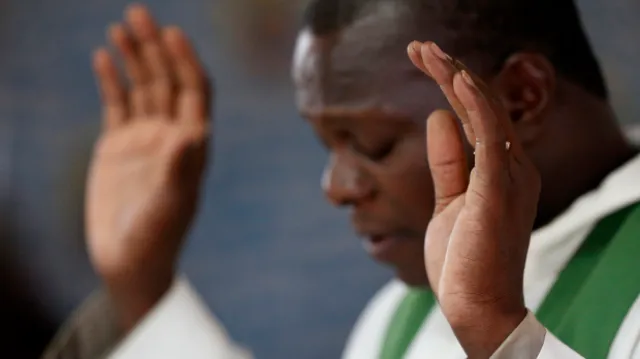The publication on December 18 of “Fiducia Supplicans”, a document from the dicastery for the Doctrine of the Faith allowing “to bless couples in an irregular situation and couples of the same sex” causes confusion among the faithful and religious people around the world.
urprise, confusion, incomprehension… All over the world, the faithful have not hidden their confusion since the publication of Fiducia Supplicans on Monday December 18. Published by the Dicastery for the Doctrine of the Faith and approved by the Pope, the document authorizes the blessing of “couples in an irregular situation and couples of the same sex” on condition of not “creating confusion with the blessing specific to the sacrament of marriage “.
In Africa, faithful, priests and bishops did not hesitate to share their incomprehension. In a three-page statement, the Kenya Conference of Catholic Bishops (KCCB) noted that certain aspects of the declaration were “causing anxiety and even confusion among Christians and, in general, among the people of God” . “In our reality, here in Africa, we are very clear about what a family and a marriage is,” the statement said. In Zambia, the country’s Bishops’ Conference said the document needed “further reflection and not implementation” in the country.
In order to “avoid creating confusion among the faithful”, the Episcopal Conference of Malawi indicated on December 19 that “for pastoral reasons, blessings of all kinds and for homosexual unions of any nature whatsoever are not permitted in Malawi. In Ivory Coast, several priests warned of the risk of confusion that this declaration could cause such as “the impression of normalizing so-called irregular situations”.
An ambiguous wording
In Denmark Mgr Czesław Kozon, Bishop of Copenhagen, does not disagree so much with the substance as with “the way in which it ( the declaration of the dicastery editor’s note ) will be received and interpreted”, he indicated on December 19 . In the Netherlands, the Bishop of Haarlem-Amsterdam, Mgr Jan Hendricks, prefers to take the time to reflect before expressing himself. “We’re all busy at the moment preparing for Christmas and that includes me. I hope to come back to the declaration in January,” he reacted.
On _ _
La caridad pastoral es una llamada a que dos los pecadores podamos ser bendecidos, pero no a bendecir nuestro pecado…Este fue el proceder de Jesús de Nazaret, quien “dijo-bien” de la femme pecadora a quien querÃan apedrear, pero no por ello bendijo sus relations (“Tampoco… pic.twitter.com/bQnxh0O3zw— Jose Ignacio Munilla (@ObispoMunilla)
For the Ukrainian Episcopal Conference, the dicastery’s declaration poses a “danger due to its ambiguous formulation which provokes divergent interpretations among the faithful”.
In Kazakhstan, a country visited by Pope Francis in the summer of 2023, Archbishop Tomash Peta and Bishop Athanasius Schneider – respectively head and auxiliary of the Archdiocese of Sainte-Marie in Astana, affirmed that the text of the dicastery for the Doctrine of the Faith approved practices that contradicted “divine revelation and the uninterrupted, two-thousand-year-old doctrine and practice” of the Catholic Church. “We urge and prohibit the priests and faithful of the Archdiocese of Saint Mary of Astana from accepting or performing any form of blessing of any kind to irregular couples and same-sex couples.”
